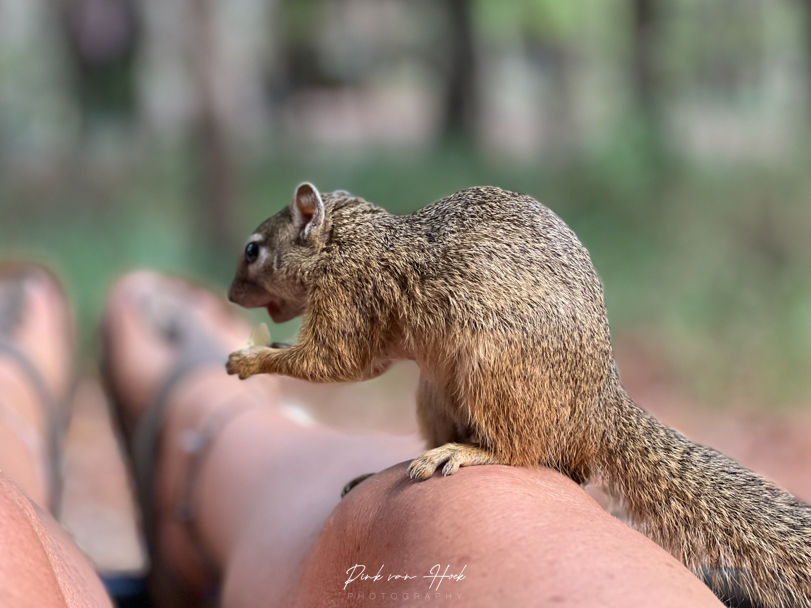
The Kalahari Bushmen
a dying culture
The San people are also known as the Bushmen
Eighteen hours is barely enough time to sum up a culture that has been lost to discrimination, bureaucracy, and modernization. Africa’s earliest inhabitants, the Kalahari Bushmen, were driven from their land and denied their natural heritage.
I consider myself incredibly fortunate to have had the privilege of spending time with these extraordinary individuals who possess an innate wisdom about the very earth they call home. Despite their small stature, the harsh environment they inhabit has left its indelible mark on their weathered faces, a testament to their resilience.
The Bushmen, who have traditionally resided in the vast expanses of the Kalahari Desert spanning Southern Africa, including regions of Botswana, Namibia, South Africa, and Angola, boast a cultural heritage that is both profound and diverse. Renowned for their unparalleled hunting and gathering skills, as well as their distinctive language and spiritual beliefs, the San people have carved out a unique place in history.
However, the encroachment of modernization has presented the San people with numerous challenges and pressures. Despite these obstacles, they valiantly strive to preserve their traditional way of life and cultural practices, refusing to succumb to the tide of change.
Once, their very existence was sustained by the bountiful land they called home. Tragically, their livelihood now hinges on the presence of tourists who pay to witness their tribal stories and observe their ancient foraging techniques. This stark reality stands as a stark reminder of the profound injustice the Bushmen people have endured, as they have been stripped of their rights to live, forage, and hunt on the very land they have inhabited for countless generations.
The women of the Bushman community have suffered particularly egregious abuses at the hands of white colonialists, who viewed their breasts as mere commodities, coveted for their ability to hold tobacco. Today, only a few hundred true Kalahari Bushmen remain, their modern lives plagued by the devastating effects of alcoholism, tuberculosis, and the scourge of HIV/AIDS.
Despite the immense hardships they face, the spirit of the Bushmen people endures, a testament to their unwavering strength and resilience. I hope that their rich cultural heritage and profound connection to the land will be recognized and respected, allowing future generations to thrive and flourish in harmony with the earth they hold so dear.

Dressed for a hunt. A thin, chameleonic mask blends into the dry, yellow bushveld.



It was July, and I was dressed in a winter jacket. We were surprised to be met by these small people wearing very little in these harsh conditions. One generation would never be enough to pass on their knowledge of roots, leaves, herbal medicines, and how to forage and hunt.

Fire is the heart of survival. She blows the embers that have been ignited using a bow drill with precision.
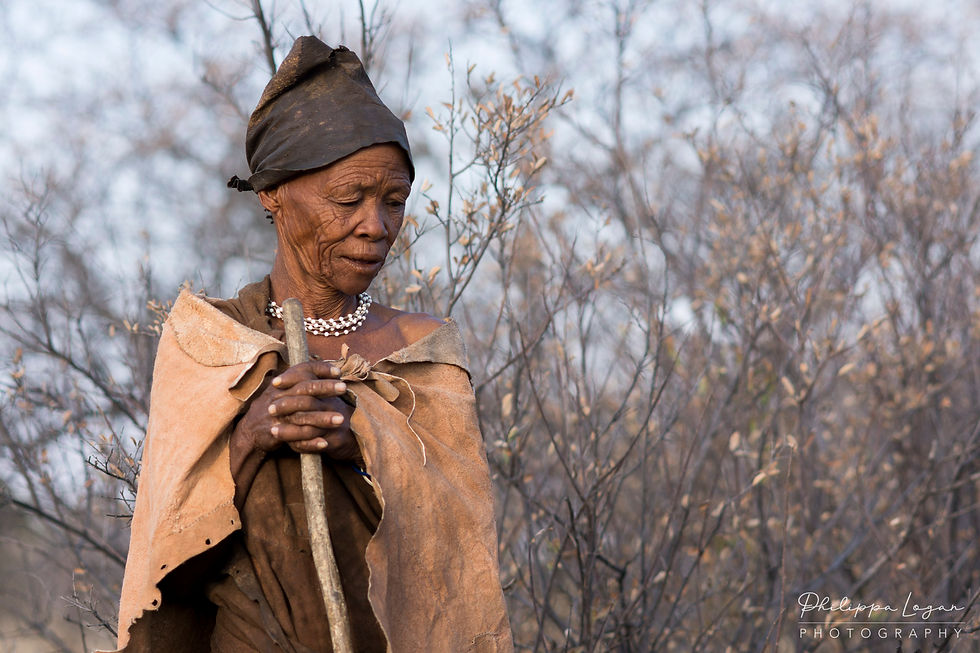
I loved this cross-cultural photo. Water is the lifeblood of the Kalahari and the overused iconic heart of modern culture.
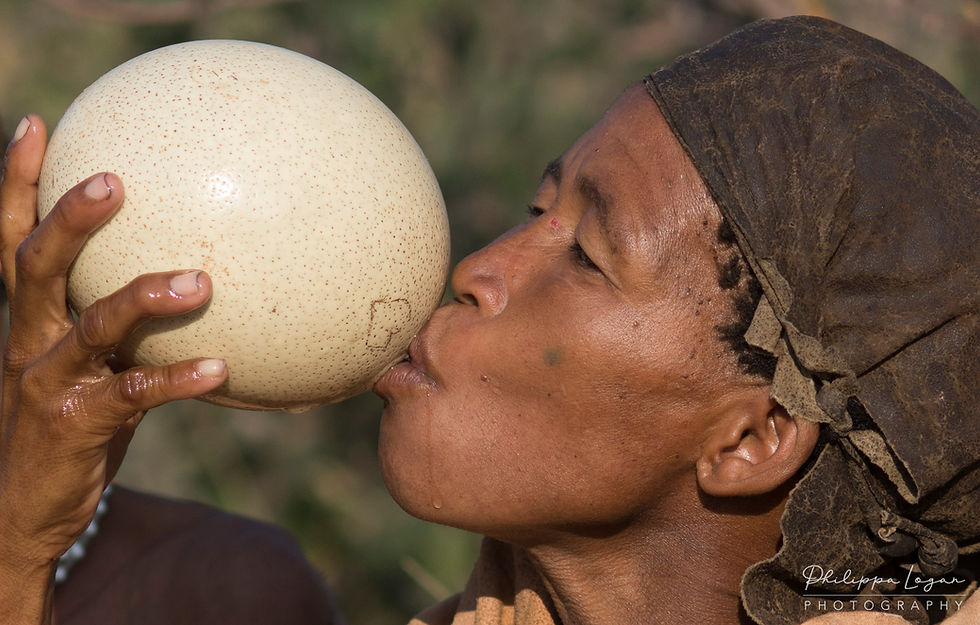
She stood there like Mother Nature herself. She demanded respect, and generations of wisdom exhaled.


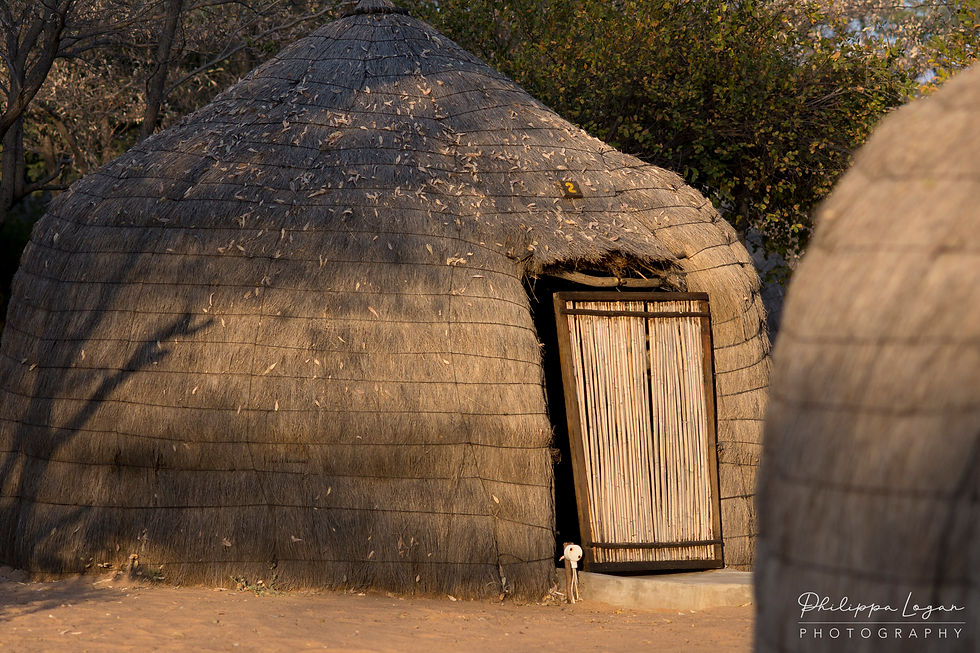
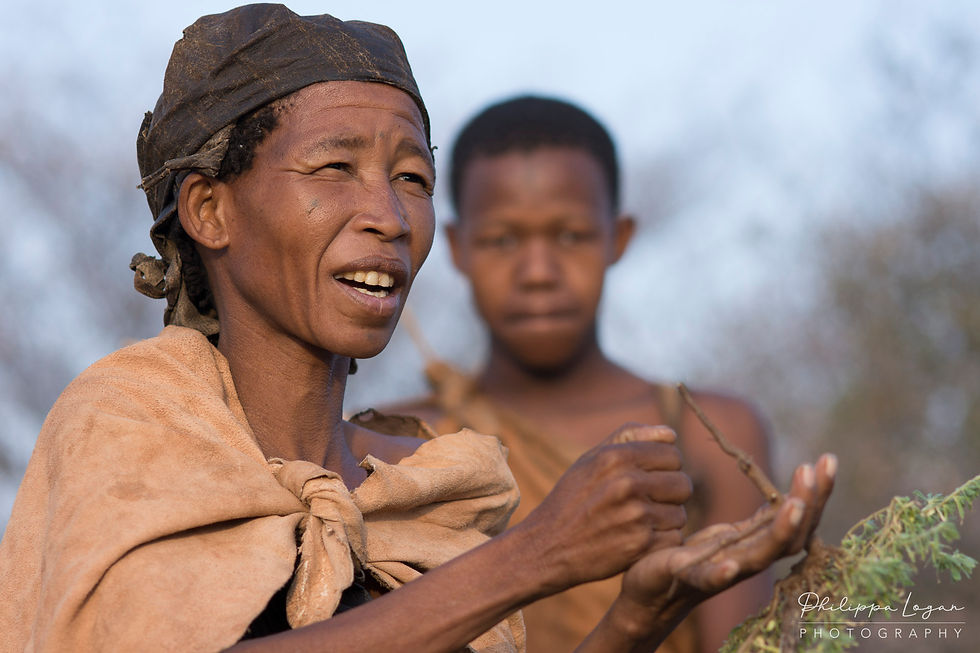
I felt humbled by this tribe’s natural knowledge. I would not have the expertise to survive in this habitat, how can we expect this tribe to survive in ours?
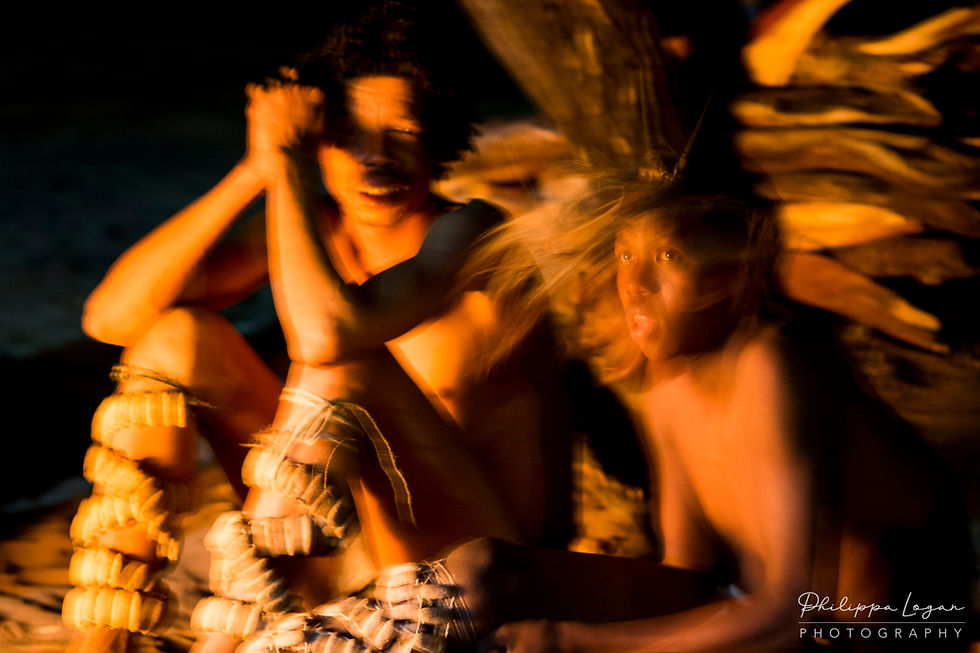
The stories danced out against the firelight. The Kalahari Bushmen filled the night with their stories, translated by dance and clicking sounds.






